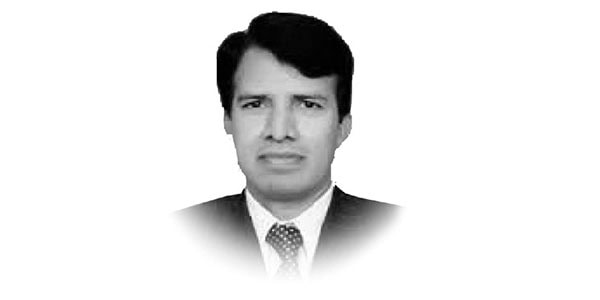The economic crisis of Pakistan
ASSESSING the economic indicators of Pakistan, the country is ranked 34th among 39 countries in the Asia–Pacific region.
Indeed, this positioning is very low and the overall economic score of Pakistan is below the regional and world averages.
Economy of Pakistan started slowing down in 2019 and reached its lowest ebb in July 2022. The economic freedom score of Pakistan is 48.8, grading its economy as 153rd freest in the 2022 Index.
Pakistan is facing extreme economic crisis of its history and the incumbent coalition Government is clueless to overcome the financial issues of the state.
The external debt of Pakistan has increased manifolds and its currency is trading at its lowest rate against the US dollar (1USD=225 PKR).
IMF and other financial institutions are imposing very tough conditions for the loan facility, agreed with the previous Government of Imran Khan.
In a way the economic crisis of Pakistan is getting deeper and deeper with each passing day.
The significance of economy can be imagined from a famous quote, “Economy is the start and end of everything” for every sovereign state.
Indeed, the strong economy is the source of national strength and forms the basis for a knowledgeable and resilient work-force of a nation.
In a highly globalised world, significance of the economy has further enhanced since it impacts the international relations among the nation states from the perspective of foreign policy, trade and security cooperation.
Unfortunately, despite heavy taxes and exceptionally high levies on all goods and utilities in Pakistan, there have been downward trends in the economy of Pakistan since last few years.
Despite being an agrarian economy, the essential food items are rapidly getting out of reach for over 70% Pakistani masses.
Inflation is record high and developmental sector is found wanting in all areas of socio-economic development of the state.
Budget of all developmental sectors of Pakistan has been reduced to minimum whereas non-developmental expenditure is increasing with each passing day.
Indeed, not the resources but the poor economic management is considered to be the real cause of deteriorating economy of Pakistan and downward trends in the living standards of 122 million Pakistanis.
In fact, the basic responsibility of the government of Pakistan is to identify and prioritize the problems facing the state and society of Pakistan.
Identifying the problem areas at an early time-frame and focusing to resolve them by all possible means and through better economic management could have saved the state of Pakistan from the ongoing economic crisis.
But, neither the problems identified nor any serious efforts were made to overcome the economic crisis, hurting the state and society alike.
Resultantly, once confronted by financial challenges, they resorted to rush to IMF for a possible rescue.
The IMF has imposed its own pre-conditions for revision and extension of loan to Pakistan. This includes imposition of heavy taxes and levies over the poor masses while there is no cut on the luxuries of the government officials and bureaucracy of the country.
Earlier in 2019, IMF provided 39-month loan to Pakistan under the Extended Fund Facility (EFF).
It was a total of $6 billion loan provided to support economic reform programme of Pakistan.
Despite this loan facility of IMF and other loans from many friendly countries, the incumbent and previous governments could neither reform the national economy nor did provide relief to Pakistani masses.
The government and its economic managers responsible to manage state’s economy could neither appreciate the looming financial crisis nor took timely measures to avoid the financial meltdown of Pakistan.
Resultantly, the country is heading towards an economic disaster which means a lot for a nuclear state like Pakistan.
While the national economy of Pakistan is sliding downwards, there has been unprecedented growth of the various cartels in Pakistan.
These cartels are controlling the prices and supply of all most all critical food items and petroleum products with or without consent of the government.
Indeed, government has become hostage to these internal and external cartels. In most of the cases these cartels are part of the government with sitting Ministers, MPs and advisors.
This was a case with PTI Government and there is no change in spite of regime change.
Despite investigations and proofs against their deliberate kick-backs and corruption, causing heavy losses to national economy and undesired short supply of items in the market, they stand unaccountable and scot-free.
Currently, the economic management of the state is being run through heavy and agonizing taxation system on poor masses which cannot be sustained long-term.
In fact, the economic management of nuclear Pakistan with rivalries all around and multiple fault-lines within cannot be run like a corporate company nor can it be left at the mercy of inept and non-serious economic managers whose inclination is more to ruin Pakistan than profiting it.
The way forward is: a massive restructuring of the economic management of Pakistan through serious, innovative and revolutionary steps where foreign economic dependence is reduced to minimum.
The non-developmental expenditure must be reduced substantially while imposing a ban on the luxuries of government officials, elite class and bureaucracy.
The political crisis is adding fuel to the existing economic crisis. Therefore, there is a need that political leadership sit together and take decisions in the national interest of Pakistan, rather than fighting for their petty political and personal gains.
— The writer is Professor of Politics and IR at International Islamic University, Islamabad.










